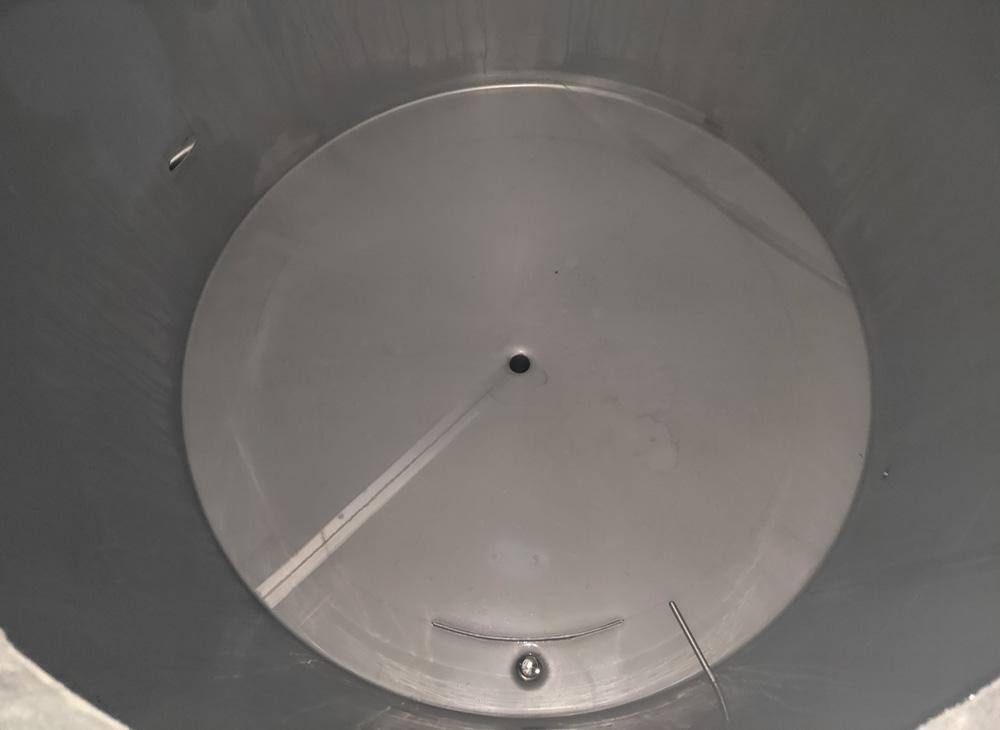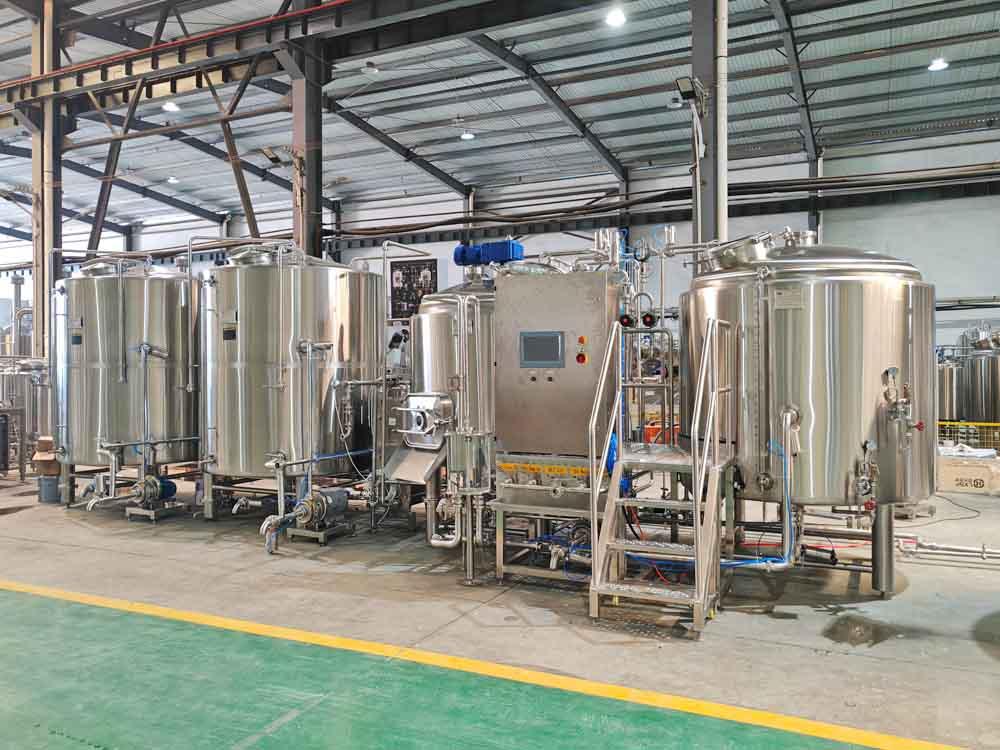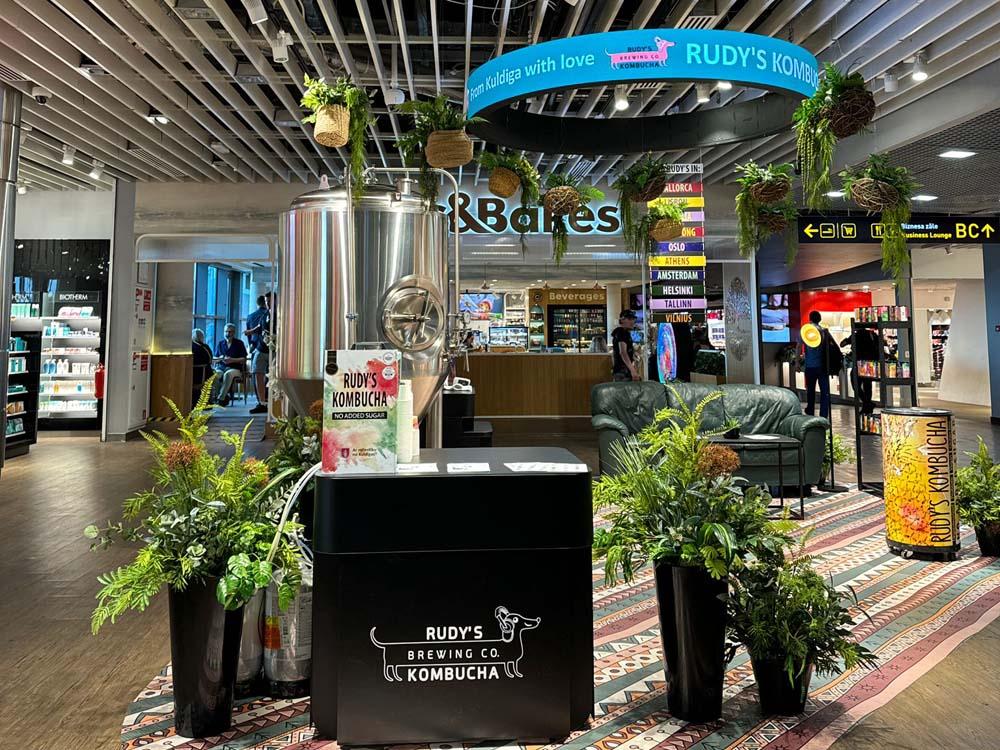Whirlpool tun in the brewhouse system
- Dec 15, 2021
- 64
- tiantai
Whirlpool.
First developed at the Moosehead Brewery in New Brunswick, Canada in 1960, the whirlpool vessel is now a common method of separating hop fragments and other solid particles from hot wort. This vessel is also sometimes referred to as “hot wort settling tank.” The principle of the whirlpool tank is that centripetal forces will cause solid particles suspended in a rotating mass of liquid to migrate to the center of the bottom of the vessel in a cone-shaped mass. Trub, a sediment containing hop fragments and solid protein-based particles, must be removed before the wort can be chilled and sent to a fermenting vessel. In order to work properly, a whirlpool tank must be a vertical cylinder with a flat bottom and the tank diameter must be at least equal to the depth of the wort when the tank is full. Deep tanks with a small diameter will not work well. The whirlpool effect is achieved by pumping the wort through an inlet line located above a height over 1/3 of the tank’s depth; the inlet pipe must be turned tangentially and can even be sized less than the diameter of the main wort line so as to increase the wort rotation inside of the tank. It is important to note that any obstruction inside the tank will create eddy-currents that will upset the smooth rotation of the wort, delay settling, and decrease the compactness of the trub pile. The bottom of the tank should have a 1% gradient incline toward the tank outlet, which should be located near the tank wall and not in the middle of the tank. As the hot wort is swirled in the whirpool tank, the sediment gathers into the center, forming a “trub cone” and leaving the rest of the wort clear. Once the wort comes to a rest, it will be pumped to the chilling apparatus from a port near the wall of the vessel, leaving the trub cone in the center. Once the wort is cast out to the fermentation vessel, the trub cone can be discarded though a port located in the center of the vessel.
The invention of the whirlpool vessel made the use of pelletized hops common in brewing; without it, the small fragments of hops contained in the pellets are very difficult to remove from the wort. While the whirlpool is usually a separate vessel in larger breweries, many smaller breweries will use a combined kettle/whirlpool vessel. This vessel can accomplish both the boiling function and the subsequent whirlpool function, but is considered a compromise, as it rarely can do either of these tasks quite as well as separate vessels specifically designed to do each.

First developed at the Moosehead Brewery in New Brunswick, Canada in 1960, the whirlpool vessel is now a common method of separating hop fragments and other solid particles from hot wort. This vessel is also sometimes referred to as “hot wort settling tank.” The principle of the whirlpool tank is that centripetal forces will cause solid particles suspended in a rotating mass of liquid to migrate to the center of the bottom of the vessel in a cone-shaped mass. Trub, a sediment containing hop fragments and solid protein-based particles, must be removed before the wort can be chilled and sent to a fermenting vessel. In order to work properly, a whirlpool tank must be a vertical cylinder with a flat bottom and the tank diameter must be at least equal to the depth of the wort when the tank is full. Deep tanks with a small diameter will not work well. The whirlpool effect is achieved by pumping the wort through an inlet line located above a height over 1/3 of the tank’s depth; the inlet pipe must be turned tangentially and can even be sized less than the diameter of the main wort line so as to increase the wort rotation inside of the tank. It is important to note that any obstruction inside the tank will create eddy-currents that will upset the smooth rotation of the wort, delay settling, and decrease the compactness of the trub pile. The bottom of the tank should have a 1% gradient incline toward the tank outlet, which should be located near the tank wall and not in the middle of the tank. As the hot wort is swirled in the whirpool tank, the sediment gathers into the center, forming a “trub cone” and leaving the rest of the wort clear. Once the wort comes to a rest, it will be pumped to the chilling apparatus from a port near the wall of the vessel, leaving the trub cone in the center. Once the wort is cast out to the fermentation vessel, the trub cone can be discarded though a port located in the center of the vessel.
The invention of the whirlpool vessel made the use of pelletized hops common in brewing; without it, the small fragments of hops contained in the pellets are very difficult to remove from the wort. While the whirlpool is usually a separate vessel in larger breweries, many smaller breweries will use a combined kettle/whirlpool vessel. This vessel can accomplish both the boiling function and the subsequent whirlpool function, but is considered a compromise, as it rarely can do either of these tasks quite as well as separate vessels specifically designed to do each.





